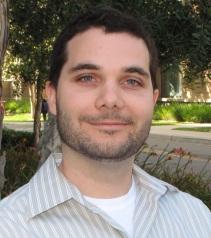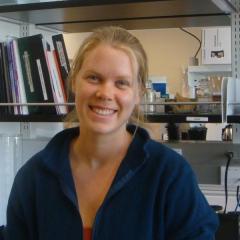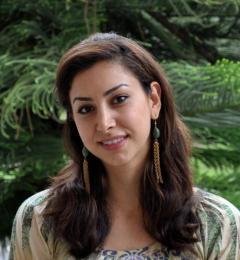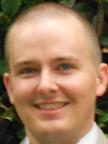ARCS Foundation Honors Samueli School Graduate Student Scholars
Students recognized for academic achievement in science and engineering
The Orange County Chapter of the Achievement Rewards for College Scientists (ARCS) Foundation, Inc. has named four students from The Henry Samueli School of Engineering as ARCS Scholars for the 2011-2012 academic year.
The ARCS® Foundation, Inc. is a national volunteer organization of women philanthropists who are dedicated to “Advancing Science in America.” It is a not-for-profit corporation founded in 1958 dedicated to helping outstanding U.S. graduate and undergraduate students by providing scholarship awards in natural sciences, medicine, engineering and information and computer science. 
James C. Jenista
Fourth-year computer science Ph.D. student (Second Year Scholar)
James C. Jenista received a B.S. degree in computer science from the University of Notre Dame, and then worked as a software engineer for Northrop Grumman Corporation for four years. He earned his master's degree in computer science at UC Irvine and is now in his fifth year of research on campus. Jenista is researching techniques to parallelize single-threaded code under the advisement of Associate Professor Brian C. Demsky, Ph.D., in the Department of Electrical Engineering and Computer Science. This research is a potential solution to a growing problem, future computer hardware is made with more and more processors, but current software does not utilize multiple processors very efficiently. Jenista participated in an internship with Google Inc. this summer and has an offer to return full time when he graduates from UC Irvine.
 Claire Robertson
Claire Robertson
Fourth-year biomedical engineering Ph.D. student
Claire Robertson received B.S. degrees in bioengineering and applied mathematics from UC San Diego. After graduation she worked as an orthopedic research engineer at Rady Children's Hospital for two years before returning to graduate school at UC Irvine. In 2009, she earned her M.S. in biomedical engineering at the Samueli School. She is currently researching airway mechanics in asthma in the lab of Edwards Lifesciences Professor Steven C. George, M.D., Ph.D. The deformation during tidal breathing of an airway in the lung is tracked and processed, using laser based imaging techniques, to determine the compliance of the airway. Using this novel technique, she seeks to determine how airway smooth muscle contraction (the final step in an asthma attack) is affected by compliance of the surrounding tissue.
 Sara Saedinia
Sara Saedinia
Third-year electrical engineering and computer science Ph.D. student (Second Year Scholar)
Sara Saedinia earned a B.S. degree in the Department of Electrical Engineering and Computer Science (EECS) at UC Berkeley. After graduation she worked at Analog Devices, Inc., a semiconductor company, and subsequently entered the Ph.D. program in EECS at UC Irvine under the guidance of Assistant Professor Mark Bachman, Ph.D. Her research is pioneering the design of a microchip device which integrates microelectronics and microfluidics. This micro-device is designed to use the western blot technique to process very small volumes of protein to identify cancer cells (existing techniques are inefficient as they use very large protein volumes). The chip is completely automated and may be used by non-specialists in the field or the point of patient care.
 William “Bill” R. Winter
William “Bill” R. Winter
Third-year biomedical engineering Ph.D. student
Bill Winter completed a B.S. in biomedical engineering (BME) and mathematics at Tulane University, a Valedictorian of the class of 2005. After working for two years at UC Irvine and earning an M.S. in BME at Tulane, he began his Ph.D. in biomedical engineering working with Associate Professor Ramesh Srinivasan, Ph.D., in the Department of Cognitive Sciences, in the School of Social Sciences in 2007. Winter's research is concerned with better understanding and interpreting neuroimaging data such as electroencephalography (EEG), magnetoencephalography (MEG), and functional magnetic resonance imaging (fMRI). In particular, his work focuses on improving the diagnosis and treatment of stroke.
